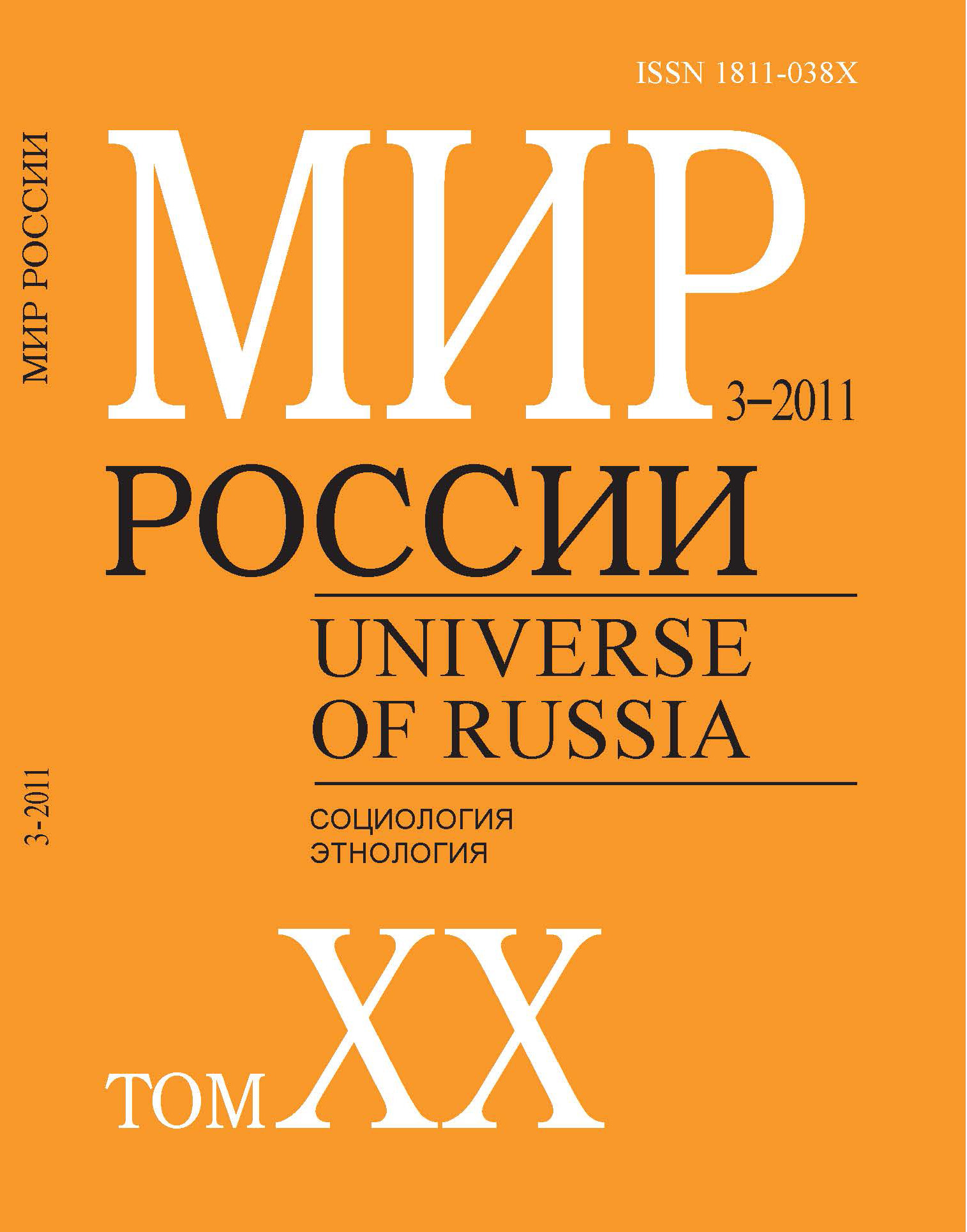Way of Life in the Process of Radical Social Change
Abstract
Andrey Vozmitel — Head of the Sector for Complex Studies of Lifestyles, Institute of Sociology, Russian Academy of Sciences. Address: Bldg. 5, 24/35, Krzhizhanovskogo St., Moscow, 117218, Russian Federation. E-mail: vozmitel@isras.ru
The last decades of modern Russian history can be referred to as the age of radical transformations. They have drastically changed the foundations of social, economic and political organization in Russian society. This article is an attempt to analyze these changes and answer the following questions: how have these changes affected the everyday life of Russians? How have these tendencies changed mass consciousness and social behavior? What is the social character of the tendencies and how might they affect the course of civilization?
The main methodological instrument for this research is a strategy of comparative study of a single process (way of life) based on a single method and two different samples. These samples were taken from the Russian population during two alternative social and political systems: the Soviet one and the one of today.
The results of the comparison show that there has been a radical decrease in the social, moral and working potential of Russian people in the last quarter of a century. It can be described as an inversion of everyday behavior standards and related instrumental values. The author suggests that the changes in everyday practices and social perceptions of people are generally regarded as negative. They bring a handful of economic and moral losses to the Russian society, rather than act as positive tendencies in coping with existing economic problems.
Labor is regarded in terms of purely instrumental values (i.e. more people regard their work, first of all, as a means of earning money to sustain their lives). Positive motivation to work is very rare among contemporary Russians and it has been steadily decreasing over the last quarter of a century. The people are also getting more afraid to lose their jobs and be socially excluded, which leads to a state of forced employment in all sectors of the economy. Although job satisfaction is rather high, there is also an evident tendency towards its decrease.
Egocentrism is also becoming a common phenomenon in everyday life. Highly threatening is the sharp rise of the ethnic intolerance and alcoholism, while most healthy processes which accompany any civilized form of societal development (mutual support, responsiveness, respect, etc) are gradually fading away. All of this shapes a very hazardous social environment.
Similar, but more apparent tendencies can be revealed through the analysis of change in instrumental values. As for terminal values, their nucleus (family and work) is more or less stable and invariant against a fundamental societal transformation. However, today a ‘confidence in the future’ is the most important unrealized value in contemporary Russia.
The break in the axiological nucleus of a Soviet way of life gave rise to an antinomical structure of mass consciousness, which is, in turn, a reflection of social and economic reality created by ‘wild Russian capitalism’.
At the same time, there is an apparent movement towards a social (or even civilizational) pathology: the weakening of rational ethic principles and the dominance of egocentrism (a non-ethical individualism); the actualization and production of numerous social risks (psychological ill-being, anomies, and deviant and self-destructive behavior).
This is a cumulative result of interrelated factors: a cardinal change in the relation between property and sociopolitical organization, and another peculiar phenomenon — an invasion of alien norms and values into the Russian culture. The energy of this social decay can only be kept at bay via socially democratic regulation — a skilful combination of different norms and values with the domination of those which sustain the development of a free personality, efficient economy and a healthy civil society.






